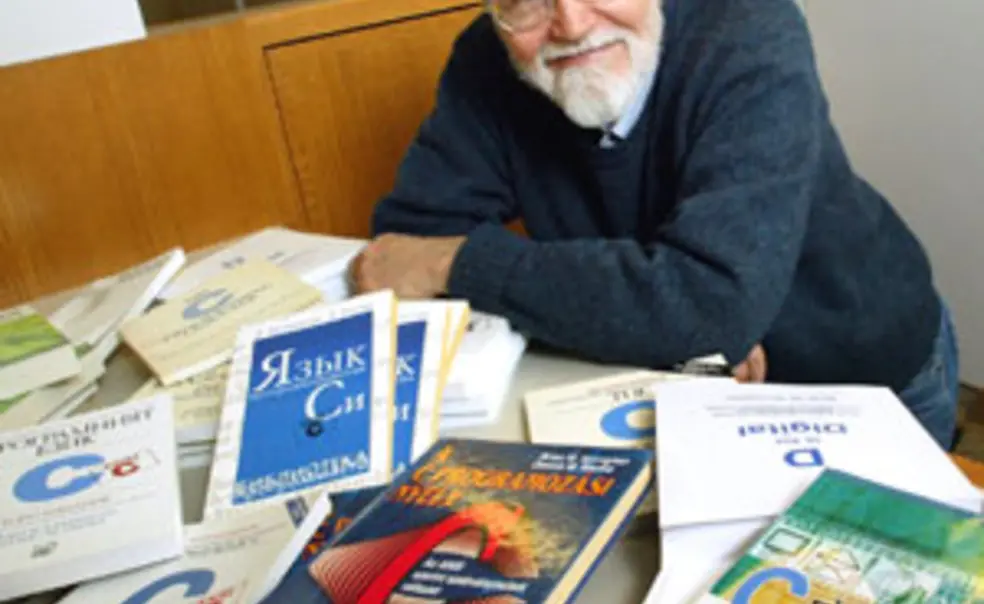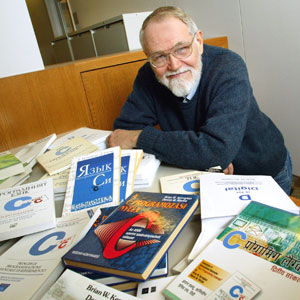Tiger of the Week: Brian Kernighan *69
Brian Kernighan *69 (Photo: Frank Wojciechowski/ Courtesy School of Engineering and Applied Science)
While Brian Kernighan *69 has spent much of his life immersed in the field of computer science, he remains resolutely tight-lipped on the Internet. Kernighan, a Princeton professor of computer science, has resisted the tide of social networks such as Facebook, Twitter, and LinkedIn, and even avoids using Gmail because of privacy concerns.
“Facebook’s model is defined on knowing everything they can possibly know about you and selling it,” he said. “There’s a downside in that you’re giving away information on yourself … maybe you don’t have any idea about the real amount of information you’re giving away that can be aggregated into a remarkably detailed picture of you.”
Kernighan writes about Internet privacy in his 2011 publication D is for Digital, a book based on his course COS 109: Computers in Our World. In both the book and the course, which caters to non-majors, Kernighan aims to explain computing technology as well as the political, social, and legal issues that have accompanied new technology to a general audience. He noted that many don’t realize just how pervasive computing devices are today.
“There’s the obvious stuff – phones, computers – but people don’t realize how much else there is floating around in all kinds of different things,” he said. “Envisaging that when I came here as a graduate student was inconceivable.”
Kernighan focused on graph partitioning for his research as an electrical engineering graduate student. His accomplishments since are legendary; he is perhaps best known for contributing to the early development of Unix and co-authoring the first book on the C programming language with Dennis Ritchie in 1988. He also helped write the AWK and AMPL programming languages. Among Princeton students, Kernighan is recognized for guest columns in The Daily Princetonian that cover topics ranging from the beauty of spring to what makes smart phones smart.
But coming up with topics for these columns is hard, he said. “I think what I often do is something happens, some trivial incident in my life, and I see it and think of a title that’s a catchphrase or something like that and flesh it out.”
Do you have a nominee for Tiger of the Week? Let us know. All alumni qualify. PAW’s Tiger of the Week is selected by our staff, with help from readers like you.













No responses yet